-
 bitcoin
bitcoin $87959.907984 USD
1.34% -
 ethereum
ethereum $2920.497338 USD
3.04% -
 tether
tether $0.999775 USD
0.00% -
 xrp
xrp $2.237324 USD
8.12% -
 bnb
bnb $860.243768 USD
0.90% -
 solana
solana $138.089498 USD
5.43% -
 usd-coin
usd-coin $0.999807 USD
0.01% -
 tron
tron $0.272801 USD
-1.53% -
 dogecoin
dogecoin $0.150904 USD
2.96% -
 cardano
cardano $0.421635 USD
1.97% -
 hyperliquid
hyperliquid $32.152445 USD
2.23% -
 bitcoin-cash
bitcoin-cash $533.301069 USD
-1.94% -
 chainlink
chainlink $12.953417 USD
2.68% -
 unus-sed-leo
unus-sed-leo $9.535951 USD
0.73% -
 zcash
zcash $521.483386 USD
-2.87%
Does the third Yin line of the evening star combination need to be increased in volume?
The evening star pattern, marked by a bullish candle, indecision candle, and bearish third Yin line, signals a potential downtrend reversal in crypto markets.
Jun 20, 2025 at 12:08 am
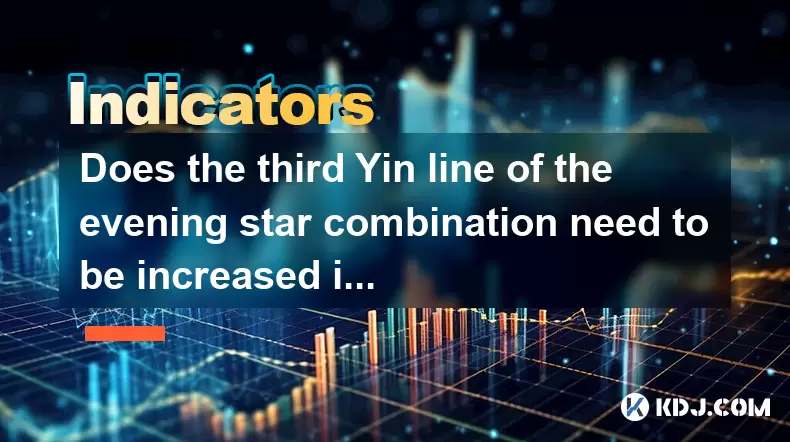
Understanding the Evening Star Candlestick Pattern
The evening star is a widely recognized candlestick pattern that signals a potential reversal from an uptrend to a downtrend. It consists of three candles: a large bullish candle, followed by a smaller candle (often a doji or spinning top), and then a bearish candle that closes below the midpoint of the first candle. Traders pay close attention to this formation as it often marks exhaustion in buying pressure.
In the context of cryptocurrency trading, where price movements can be volatile and swift, recognizing such patterns accurately becomes even more crucial. Each component of the evening star carries its own weight in confirming the validity of the reversal signal.
The third Yin line refers to the final bearish candle in the pattern. This candle represents strong selling momentum and typically confirms the reversal initiated by the preceding indecision candle.
The Role of Volume in Candlestick Analysis
Volume plays a pivotal role in validating many technical patterns, including candlestick formations like the evening star. In traditional technical analysis, higher volume during the third candle of the evening star suggests stronger conviction among sellers, reinforcing the likelihood of a successful trend reversal.
However, when applied to cryptocurrencies, which often trade across multiple exchanges with varying liquidity levels, interpreting volume becomes slightly more complex. Unlike traditional markets, crypto volume can sometimes be misleading due to wash trading and inconsistent reporting standards.
- High volume on the third candle may indicate genuine market participation and increased selling pressure.
- Low volume, on the other hand, might suggest a lack of interest or weak conviction behind the reversal.
Therefore, while volume should not be ignored, it must be interpreted alongside other confirmation tools like moving averages or RSI.
Does the Third Yin Line Require Increased Volume?
This question lies at the heart of understanding whether the evening star pattern is reliable in a given market environment. The short answer is: it depends on the broader market context. In traditional candlestick theory, increased volume during the third candle strengthens the pattern's reliability. However, in cryptocurrency markets, this rule isn't always strictly applicable.
There are instances where strong reversals occur on relatively low volume due to the decentralized and often manipulated nature of crypto trading volumes. Conversely, high volume without a clear price move can also be deceptive.
- If the third candle breaks key support levels or moves past significant moving averages, increased volume adds credibility to the move.
- In sideways or consolidation phases, volume spikes might be less relevant unless accompanied by fundamental or macro triggers.
Traders should assess the broader chart structure and use additional filters to avoid false signals.
How to Confirm the Validity of the Evening Star in Crypto Markets
Given the unique characteristics of cryptocurrency markets, relying solely on candlestick patterns can be risky. To increase the accuracy of the evening star signal, especially when evaluating the third Yin line, traders should consider combining it with other indicators.
One effective method involves using Fibonacci retracement levels to identify areas where selling pressure could naturally intensify. Additionally, monitoring order flow through depth charts or analyzing on-chain metrics can provide deeper insight into real market activity.
- Check for confluence with key resistance zones – If the evening star appears near a well-established resistance level, it increases the probability of a valid reversal.
- Use RSI divergence – A bearish divergence on the RSI indicator occurring simultaneously with the evening star enhances the strength of the signal.
- Observe volume trends across exchanges – Use platforms that aggregate clean volume data to filter out anomalies caused by fake trading activity.
These steps help traders make more informed decisions and reduce the risk of acting on false candlestick patterns.
Practical Steps to Trade the Evening Star in Cryptocurrency
To effectively trade the evening star in crypto, follow these detailed steps:
- Identify the pattern clearly – Ensure all three candles conform to the evening star structure: a large green candle, followed by an indecision candle, and a red candle closing below the first candle’s midpoint.
- Assess the surrounding price action – Look for signs of overbought conditions or recent resistance tests that support a reversal scenario.
- Confirm with volume – Although not mandatory, increased volume on the third candle adds confidence to the trade setup.
- Set entry points – Enter a short position once the third candle has fully closed and shows clear bearish momentum.
- Place stop loss above the high of the first candle – This helps manage risk if the pattern fails.
- Target profit based on previous support/resistance levels – Use measured moves or Fibonacci extensions to determine realistic exit points.
By following this structured approach, traders can better navigate the volatility inherent in crypto markets and improve their chances of executing successful trades.
Frequently Asked Questions
Can the evening star pattern still be valid if the third candle has low volume?Yes, the pattern can still be valid. While high volume strengthens the signal, low volume doesn't necessarily invalidate it. Traders should look for additional confirmations like price rejection at resistance or bearish divergences on oscillators.
Is the evening star equally effective in all cryptocurrency timeframes?No, the effectiveness varies. Higher timeframes like the 4-hour or daily charts tend to produce more reliable evening star signals compared to lower timeframes, which are more prone to noise and false signals.
Should I always wait for the third candle to close before taking action?Yes, waiting for the third candle to fully close is critical. Acting prematurely based on an incomplete pattern increases the risk of entering a trade that may not materialize as expected.
Are there alternative patterns similar to the evening star that I should watch for?Yes, the shooting star and bearish engulfing patterns are closely related and often appear in similar contexts. Combining multiple bearish reversal patterns can enhance trading accuracy.
Disclaimer:info@kdj.com
The information provided is not trading advice. kdj.com does not assume any responsibility for any investments made based on the information provided in this article. Cryptocurrencies are highly volatile and it is highly recommended that you invest with caution after thorough research!
If you believe that the content used on this website infringes your copyright, please contact us immediately (info@kdj.com) and we will delete it promptly.
- Wall Street Whales, DeFi Dynamos, and the Cross-Asset Surge: Decoding BTC, ETH, and Hyperliquid's Latest Plays
- 2026-02-01 13:00:02
- The Big Apple's Crypto Crunch: Dogecoin, Rugpulls, and the Elusive Opportunity
- 2026-02-01 12:55:01
- Bitcoin Tumbles: Trump's Fed Pick and Geopolitical Jitters Spark Price Drop
- 2026-02-01 12:45:01
- Bitcoin's Rocky Road: Inflation Surges, Rate Cut Hopes Fade, and the Digital Gold Debate Heats Up
- 2026-02-01 09:40:02
- Ethereum Navigates Bull Trap Fears and Breakout Hopes Amidst Volatile Market
- 2026-02-01 12:55:01
- Bitcoin Shows Cheaper Data Signals, Analysts Eyeing Gold Rotation
- 2026-02-01 07:40:02
Related knowledge
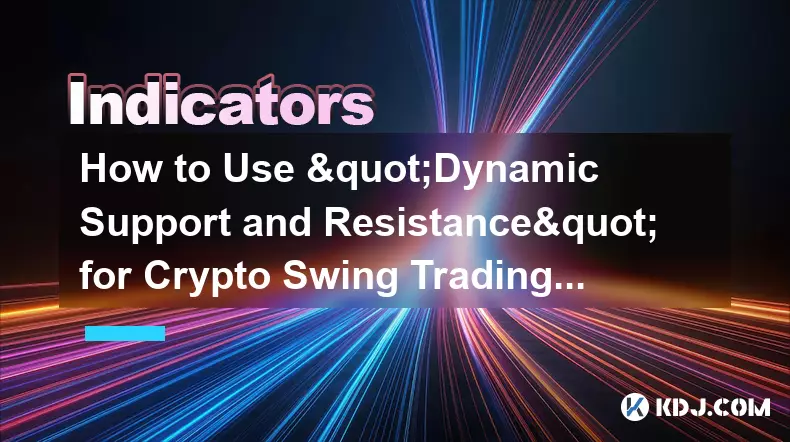
How to Use "Dynamic Support and Resistance" for Crypto Swing Trading? (EMA)
Feb 01,2026 at 12:20am
Understanding Dynamic Support and Resistance in Crypto Markets1. Dynamic support and resistance levels shift over time based on price action and movin...
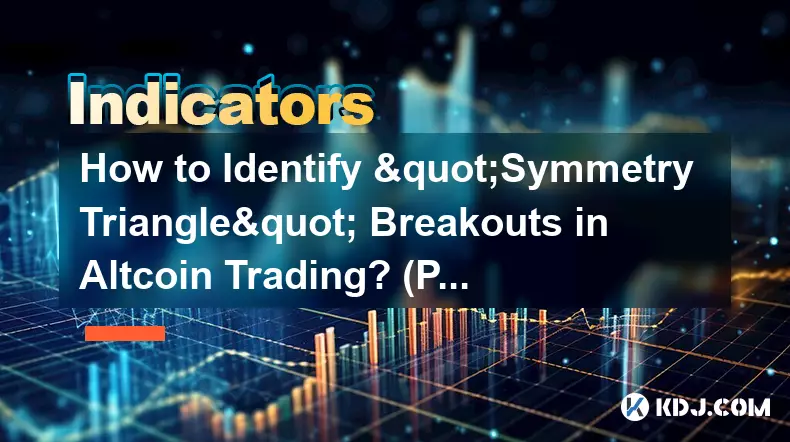
How to Identify "Symmetry Triangle" Breakouts in Altcoin Trading? (Patterns)
Feb 01,2026 at 01:39pm
Symmetry Triangle Formation Mechanics1. A symmetry triangle emerges when price action consolidates between two converging trendlines—one descending an...
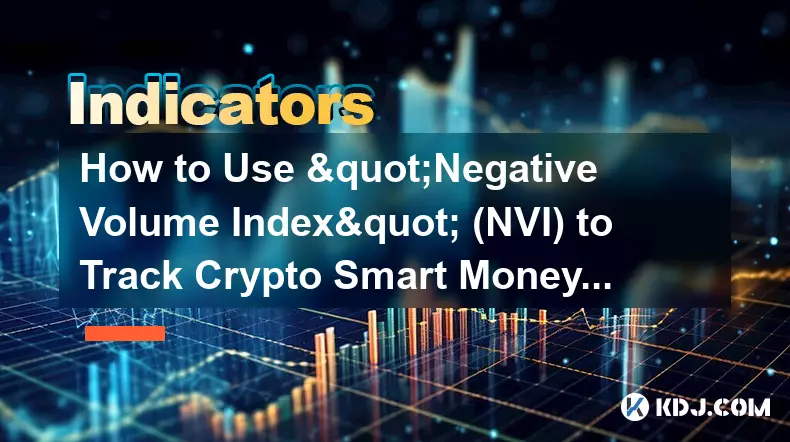
How to Use "Negative Volume Index" (NVI) to Track Crypto Smart Money? (Pro)
Feb 01,2026 at 02:40am
Understanding NVI Mechanics in Crypto Markets1. NVI calculates cumulative price change only on days when trading volume decreases compared to the prio...
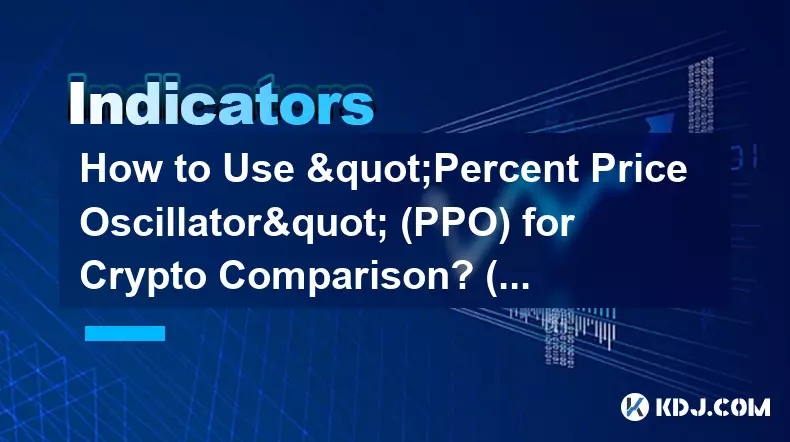
How to Use "Percent Price Oscillator" (PPO) for Crypto Comparison? (Strategy)
Feb 01,2026 at 01:59am
Understanding PPO Mechanics in Volatile Crypto Markets1. The Percent Price Oscillator calculates the difference between two exponential moving average...
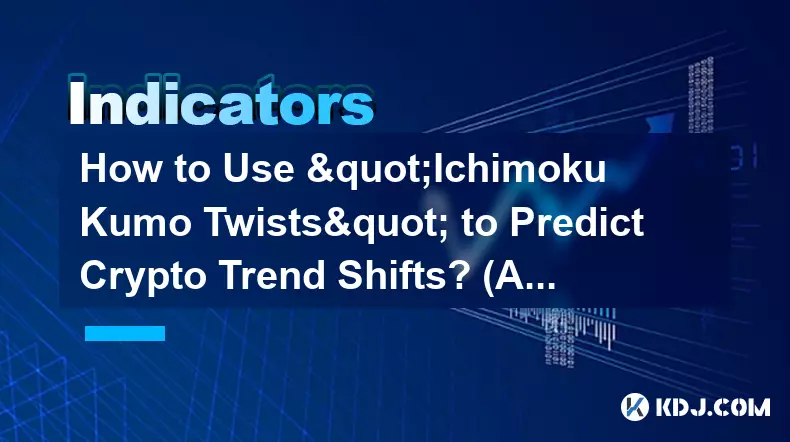
How to Use "Ichimoku Kumo Twists" to Predict Crypto Trend Shifts? (Advanced)
Feb 01,2026 at 10:39am
Understanding the Ichimoku Kumo Structure1. The Kumo, or cloud, is formed by two boundary lines: Senkou Span A and Senkou Span B, plotted 26 periods a...
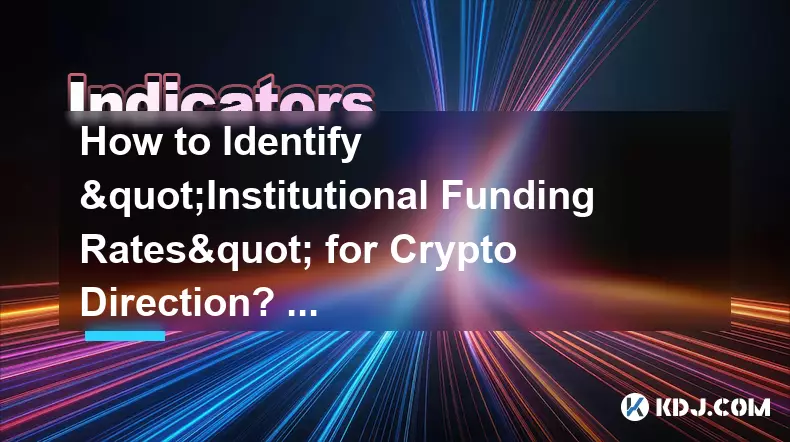
How to Identify "Institutional Funding Rates" for Crypto Direction? (Sentiment)
Feb 01,2026 at 07:20am
Understanding Institutional Funding Rates1. Institutional funding rates reflect the cost of holding perpetual futures positions on major derivatives e...

How to Use "Dynamic Support and Resistance" for Crypto Swing Trading? (EMA)
Feb 01,2026 at 12:20am
Understanding Dynamic Support and Resistance in Crypto Markets1. Dynamic support and resistance levels shift over time based on price action and movin...

How to Identify "Symmetry Triangle" Breakouts in Altcoin Trading? (Patterns)
Feb 01,2026 at 01:39pm
Symmetry Triangle Formation Mechanics1. A symmetry triangle emerges when price action consolidates between two converging trendlines—one descending an...

How to Use "Negative Volume Index" (NVI) to Track Crypto Smart Money? (Pro)
Feb 01,2026 at 02:40am
Understanding NVI Mechanics in Crypto Markets1. NVI calculates cumulative price change only on days when trading volume decreases compared to the prio...

How to Use "Percent Price Oscillator" (PPO) for Crypto Comparison? (Strategy)
Feb 01,2026 at 01:59am
Understanding PPO Mechanics in Volatile Crypto Markets1. The Percent Price Oscillator calculates the difference between two exponential moving average...

How to Use "Ichimoku Kumo Twists" to Predict Crypto Trend Shifts? (Advanced)
Feb 01,2026 at 10:39am
Understanding the Ichimoku Kumo Structure1. The Kumo, or cloud, is formed by two boundary lines: Senkou Span A and Senkou Span B, plotted 26 periods a...

How to Identify "Institutional Funding Rates" for Crypto Direction? (Sentiment)
Feb 01,2026 at 07:20am
Understanding Institutional Funding Rates1. Institutional funding rates reflect the cost of holding perpetual futures positions on major derivatives e...
See all articles
























![[Audio stories] Streamer Became a Billionaire Overnight After Buying One Junk Coin [Audio stories] Streamer Became a Billionaire Overnight After Buying One Junk Coin](/uploads/2026/02/01/cryptocurrencies-news/videos/origin_697eaa9a495ed_image_500_375.webp)

















































